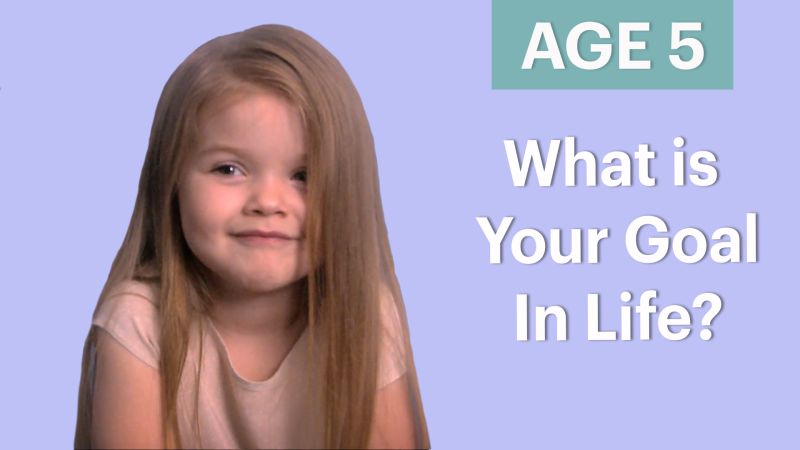Reddit Dating Older Girl
Theres only three reasons I would avoid dating an older woman. 1.) Kids-it's not that I wouldn't date the mom, I'm just wary of women with kids because I'm from a single mom. I respect her parenthood and that no matter what, if I'm serious about her then those kids are gonna be a big part of my life too. I see a lot of posts by 'nice men' who don't get the girl. The moment I dated the nice nerd who didn't have his first girlfriend until 30, I realized I made a mistake. I think men who complain about being the nice guy who loses the girl to the asshole may need to focus on learning how to treat women.
Dating men in their 30s is like hitting the sweet spot. They’re old enough to have finally figured out most of the important things in life, like their career and that they prefer happy-hour cocktails over hitting up the clubs at 11:00 p.m. But they’re also young enough to be open to new experiences and relationships without the cynicism and baggage that men above 40 might have acquired throughout their dating life. Before you say yes to that date with a thirty-something man, here’s (almost) everything you need to know about him.
1. He understands beauty is only skin deep.
A man in his 20s might have been more obsessed with his abs than you, but a man in his 30s is looking for someone with more substance and tons of confidence. Your thirty-something man realizes that a woman’s worth as well as her attractiveness goes deeper than her physical appearance. Of course men in their 30s appreciate a woman who takes pride in how she looks, but they also understand that good looks only get you so far. Self-esteem and a creative mind are the sexy turn-ons he’s looking for.
2. He doesn’t want any drama.
A man in his 30s is over the emotional outbursts, the dramatic head games, and all the chaotic confusion that typically depicts dating in your twenties. Now he just wants straight forwardness, honesty, and lots of peace and calm in his relationships. (i.e. no late night drunk texting and asking, “What are we?!!”) If you are curious about his feelings or relationship status, then just ask.

3. He’s looking to settle down… soonish.
Most men in their 30s are tired of random hookups and casual relationships that never go anywhere. He wants to find a suitable partner for a long-term relationship, and, eventually, possibly, marriage. However, dating doesn’t automatically equal marriage right away for the thirty-something man. Most men in their 30s are finally earning a stable income, which might mean he’s more concerned with getting that promotion than sending out wedding invitations. If you’re wondering where’s he at, ask him what he hopes to achieve over the next five years. If he mentions marriage, he’s looking for a commitment. If he mentions surfing around the world with his dudes, then he’s probably content with just dating. For now.
4. He wants support.
Men in their 20s have a lot of bravado. They hang out with their friends 24/7 and think they know a lot about the world, including women and dating, when they actually know next to nada. A man in his 30s realizes that he was a mess in his 20s and wants to better himself, but he also realized that he needs support getting his stuff together. He’s looking for a woman who he can learn from and lean on during the tough times, and someone with whom he can happily share the good times. If you’re open to nurturing him to be the best person he can be, then you just might find your match.

5. He wants you to be open about what you want.
A man in his 30s is more open to clear and honest communication than ever before. Whether it’s discussing your thoughts on marriage, having a family (or not) or what you would prefer he do in the bedroom, he wants to know it all. Don’t remain silent in fear of scaring him away. In fact, it’s remaining quiet about your needs and wants that might actually cause him to walk away.
Remember, a man in his 30s has, for the most part, relinquished the cavalier, immature, and sometimes selfish ways of his 20s. He’s open to experiencing one of the most significant relationships in his life—there’s no reason why it can’t be with you.
Subscribe to our newsletter
By clicking Submit you agree to Zoosk’s terms of use and privacy policy.
You’re at a party and you see someone cute across the room. They glance at you, maybe even smile for a second, then carry on with their conversation. You feel the room shrink, your heart rate quicken, your face go red: You’re crushing on this stranger, hard. But then the sensible part of your brain tells you to forget it: That person’s way, way out of your league.
Wait a second, you counter: Do dating “leagues” even exist?
At this point, Elizabeth Bruch, a professor of sociology at the University of Michigan, crashes in to your thought process (and this news article). Yep, she says. Leagues do seem to exist. But you’re not alone in trying to escape yours: “Three-quarters, or more, of people are dating aspirationally,” she says. And according to a new study, users of online-dating sites spend most of their time trying to contact people “out of their league.”
In fact, most online-dating users tend to message people exactly 25 percent more desirable than they are.
Bruch would know. She’s spent the past few years studying how people make decisions and pursue partners on online-dating sites, using exclusive data from the dating sites themselves. “There’s so much folk wisdom about dating and courtship, and very little scientific evidence,” she told me recently. “My research comes out of realizing that with these large-scale data sets, we can shed light on a lot of these old dating aphorisms.”
In the new study, published Wednesday in the journal Science Advances, Bruch and her colleagues analyzed thousands of messages exchanged on a “popular, free online-dating service” between more than 186,000 straight men and women. They looked only at four metro areas—New York, Boston, Chicago, and Seattle—and only at messages from January 2014.
Imagine for a second that you are one of the users Bruch and her colleagues studied—in fact, imagine that you are a very desirable user. Your specific desirability rank would have been generated by two figures: whether other desirable people contacted you, and whether other desirable people responded when you contacted them. If you contacted a much less desirable person, their desirability score would rise; if they contacted you and you replied, then your score would fall.
The team had to analyze both first messages and first replies, because, well, men usually make the first move. “A defining feature of heterosexual online dating is that, in the vast majority of cases, it is men who establish the first contact—more than 80 percent of first messages are from men in our data set,” the study says. But “women reply very selectively to the messages they receive from men—their average reply rate is less than 20 percent—so women’s replies … can give us significant insight about who they are interested in.”
The team combined all that data by using the PageRank algorithm, the same software that helps inform Google’s search results. It found that—insofar as dating “leagues” are not different tiers of hotness, but a single ascending hierarchy of desirability—then they do seem to exist in the data. But people do not seem universally locked into them—and they can occasionally find success escaping from theirs.
The key, Bruch said, is that “persistence pays off.”
“Reply rates [to the average message] are between zero percent and 10 percent,” she told me. Her advice: People should note those extremely low reply rates and send out more greetings.
Michael Rosenfeld, a professor of sociology at Stanford University who was not connected to this study, agreed that persistence was a good strategy. “The idea that persistence pays off makes sense to me, as the online-dating world has a wider choice set of potential mates to choose from,” he told me in an email. “The greater choice set pays dividends to people who are willing to be persistent in trying to find a mate.”
Of the study as a whole, he said: “I think its conclusions are robust and its methodologies are sound.”
Yet what also emerges from the data is a far more depressing idea of “leagues” than many joking friends would suppose. Across the four cities and the thousands of users, consistent patterns around age, race, and education level emerge. White men and Asian women are consistently more desired than other users, while black women rank anomalously lower.
Bruch said that race and gender stereotypes often get mixed up, with a race acquiring gendered connotations. “Asian is coded as female, so that’s why Asian women get so much market power and Asian men get so little,” she told me. “For black men and women, it’s the opposite.”
But “what we are seeing is overwhelmingly the effect of white preferences,” she cautioned. “This site is predominantly white, 70 percent white. If this was a site that was 20 percent white, we may see a totally different desirability hierarchy.”
“Other people have done research using data from online-dating sites, and found similar racial and gender hierarchies,” said Rosenfeld, the Stanford professor.
And Bruch emphasized that the hierarchy did not just depend on race, age, and education level: Because it is derived from user behavior, it “captures whatever traits people are responding to when they pursue partners. This will include traits like wittiness, genetic factors, or whatever else drives people to message,” she said.
Here are seven other not entirely happy takeaways from Bruch’s study:
- In the study, men’s desirability peaks at age 50. But women’s desirability starts high at age 18 and falls throughout their lifespan.
How Age Affects Online-Dating Desirability Among Heterosexual Men and Women
“I mean, everybody knows—and as a sociologist, it’s been shown—that older women have a harder time in the dating market. But I hadn’t expected to see their desirability drop off from the time they’re 18 to the time they’re 65,” Bruch told me.
“But I was also surprised to see how flat men’s desirability was over the age distribution,” she said. “For men, it peaks around age 40 or 50. Especially in New York.”
- New York is a men’s market, at least according to this particular study.

It’s not just that older men are considered most desirable in New York.
“New York is a special case for men,” Bruch told me. “It’s the market with the highest fraction of women. But it’s also about it being an incredibly dense market.”
- Seattle is a women’s market—and also the only place where men succeed by sending longer opening messages.
“Seattle presents the most unfavorable dating climate for men, with as many as two men for every woman in some segments,” the study says.
Across all four cities, men and women generally tended to send longer messages to people who were more desirable than them. Women, especially, deployed this strategy.
But the only place it paid off—and the only people for whom it worked with statistically significant success—were men in Seattle. The longest messages in the study were sent by Seattle men, the study says,“and only Seattle men experience a payoff to writing longer messages.”
- Women’s prospects dim not only as they age, but as they achieve the highest level of education.
A more educated man is almost always more desirable, on average: Men with postgraduate degrees outperform men with bachelor’s degrees; men with bachelor’s degrees beat high-school graduates.
“But for women, an undergraduate degree is most desirable,” the study says. “Postgraduate education is associated with decreased desirability among women.”
How Education Affects Online-Dating Desirability Among Heterosexual Men and Women
- Men did not find more success when they sent happy messages.
Across all four cities, men tended to use less positive language when messaging more desirable women. They may have stumbled upon this strategy through trial and error because “in all four cities, men experience slightly lower reply rates when they write more positively worded messages.”
- Almost no one messages users less desirable than they are.
Most people seem to know their position on the hierarchy because they most contact people who rank the same. “The most common behavior for both men and women is to contact members of the opposite sex who on average have roughly the same ranking as themselves,” Bruch and her colleagues write.
But the overall distribution is skewed because “a majority of both sexes tend to contact partners who are more desirable than themselves on average—and hardly any users contact partners who are significantly less desirable.”
Reddit Online Dating
- Your online-dating experience is not as bad as this poor woman’s in New York.
“The most popular individual in our four cities, a 30-year-old woman living in New York, received 1504 messages during the period of observation,” the study says. This is “equivalent to one message every 30 min, day and night, for the entire month.” Yikes.